Table of Contents
As parents navigate the challenges of the cold and flu season, a key concern is selecting the best probiotics after taking antibiotics.
Antibiotics, while essential in combating infections, often disrupt the balance of healthy bacteria in the digestive tract.
This indiscriminate targeting of both harmful and beneficial bacteria can impact the immune system and overall gut health.
In this blog, I’ll delve into the benefits of taking probiotic supplements and how they support your child’s health post-antibiotic treatment.
Understanding the Impact of Antibiotics on the Microbiome
Antibiotics can significantly alter the microbiome’s composition, affecting not just children but also adults.
Research shows that the microbiome, although resilient, may take several months to recover its healthy bacteria balance after antibiotic treatment.
In children, this recovery process can extend up to two years, emphasising the need for taking probiotic supplements to support the microbiome’s diversity and balance.
The Crucial Role of Probiotic Supplements Post-Antibiotics
Introducing the best probiotic supplements during and after antibiotics is vital.
These supplements, packed with beneficial bacteria, are key in replenishing the gut’s microbiome.
They play a significant role in restoring balance, aiding the digestive system, and enhancing the immune response.
Including probiotic supplements in your child’s diet after antibiotic treatment is crucial for maintaining a robust and diverse gut microbiome.
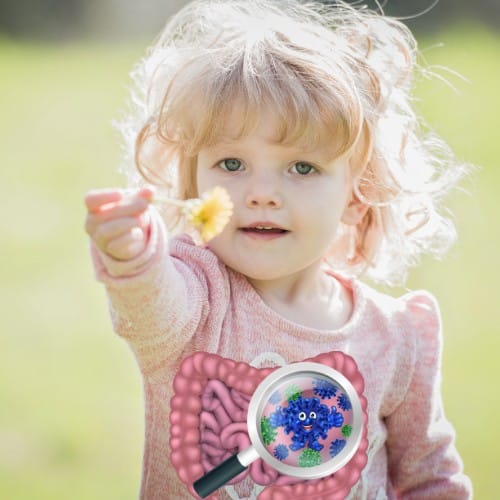
How to choose the best probiotics after antibiotics
When it comes to selecting the right probiotics after antibiotic treatment, the landscape can be a bit puzzling.
A recent comprehensive review of clinical studies suggests that the health benefits of probiotics might not always be specific to certain strains.
This means that various probiotics within the same group could potentially offer similar health advantages.
However, when picking a probiotic for your child, it’s crucial to choose one that’s backed by solid scientific evidence.
Opt for strains that have been rigorously tested and proven effective in children through well-designed randomized controlled trials (RCTs).
This ensures that the probiotic you choose is not only safe but also effective for your child’s specific needs.
Here are my top recommendations for reducing antibiotic-related diarrhoea in children:
- Lactobacillus rhamnosus GG: This strain is widely recognized for its efficacy and safety in children.
- Saccharomyces Boulardii: A yeast-based probiotic, known for its beneficial role in gut health, especially in managing diarrhoea.
Remember, the right probiotic can make a significant difference in your child’s recovery and overall gut health post-antibiotics.
Choose wisely and always consider the scientific backing of the probiotic you select.

Probiotics vs. Autologous Fecal Microbiota Transplantation
Recent studies suggest that the gut might recover more effectively with its own ‘seeds’ (aFMT) rather than introducing new ones through probiotics.
However, since aFMT involves complex medical procedures, it’s not practical for home care.
Therefore, taking probiotics remains the preferred method to support the digestive tract and immune system after antibiotic treatment.
Benefits of Probiotic Supplements During and After Antibiotics
Choosing the right probiotic supplement during and after antibiotic treatment offers several benefits:
- Reduces Antibiotic-Associated Diarrhoea: Probiotics are effective in reducing diarrhoea, a common side effect of antibiotics.
- Maintains Gut Microbiota Balance: Probiotic supplements help restore the balance of beneficial bacteria in the digestive tract, disrupted by antibiotics whilst handling the harmful bacteria.
- Boosts Immune Function: A healthy gut environment, supported by probiotics, can strengthen the body’s immune response, reducing the likelihood of further health complications.
- Alleviates Gastrointestinal Symptoms: Probiotic supplements can ease other symptoms associated with antibiotic use, such as bloating and discomfort, contributing to overall digestive health and comfort.
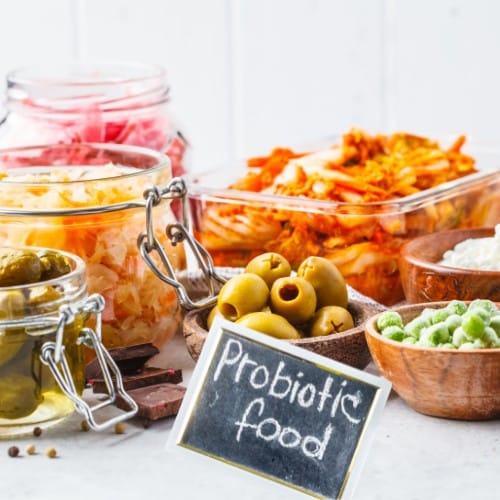
How to replenish good bacteria after antibiotics
Incorporating Fermented Foods into the Diet
In addition to probiotic supplements, including fermented foods in your child’s diet can further support their microbiome.
The following foods are natural sources of probiotics, promoting a healthy balance of bacteria in the body.
Prebiotic Foods
Prebiotic foods are essential in nurturing a healthy gut environment, especially for children.
These foods act as fuel for the beneficial bacteria in the digestive system, promoting their growth and activity.
Incorporating child-friendly prebiotic foods into your little one’s diet can be both fun and beneficial.
Cooking with ingredients like garlic and onions not only adds flavour to meals but also boosts their prebiotic intake.
Including foods like bananas, which are a hit with most kids, can further enhance their gut health.
These natural prebiotics support the flourishing of healthy bacteria, contributing to a balanced and thriving gut microbiome in children.
Also see: How to Supercharge Your Kids Gut

Stress
Effectively managing stress is crucial for maintaining gut health in children.
Stress, from various sources including school pressures and social challenges, can significantly impact a child’s gastrointestinal health and exacerbate existing conditions.
Reducing stress, especially during high-pressure periods like exams, is essential.
Creating a supportive home environment and establishing routines can help alleviate stress.
Techniques like mindfulness, regular exercise, and ensuring adequate leisure time are beneficial.
For exam-related stress, it’s important to have strategies in place, such as organized study plans, relaxation techniques, and open communication about their concerns.
Parents can also aid by setting a calm example and encouraging healthy stress management habits.
Remember, a balanced approach to stress can positively influence both mental and gut health in children.
Sleep
Getting enough sleep is crucial for your child’s gut health.
Did you know that not sleeping enough can interfere with the variety of microbes in their gut?
This can slow down their metabolism and systemic inflammation.
This is super important for kids who are bouncing back from an antibiotic course, as they need good sleep to heal their gut properly.
Here’s a tip: make sure your child stays active during the day.
It helps them sleep better at night.
Also, try to cut down on their screen time before bedtime and keep their stress levels low.
A regular bedtime routine and a peaceful bedroom environment can work wonders in making sure they get the deep, restful sleep their gut needs to stay healthy.
Remember, good sleep is as crucial as a balanced diet for maintaining overall gut health in children.
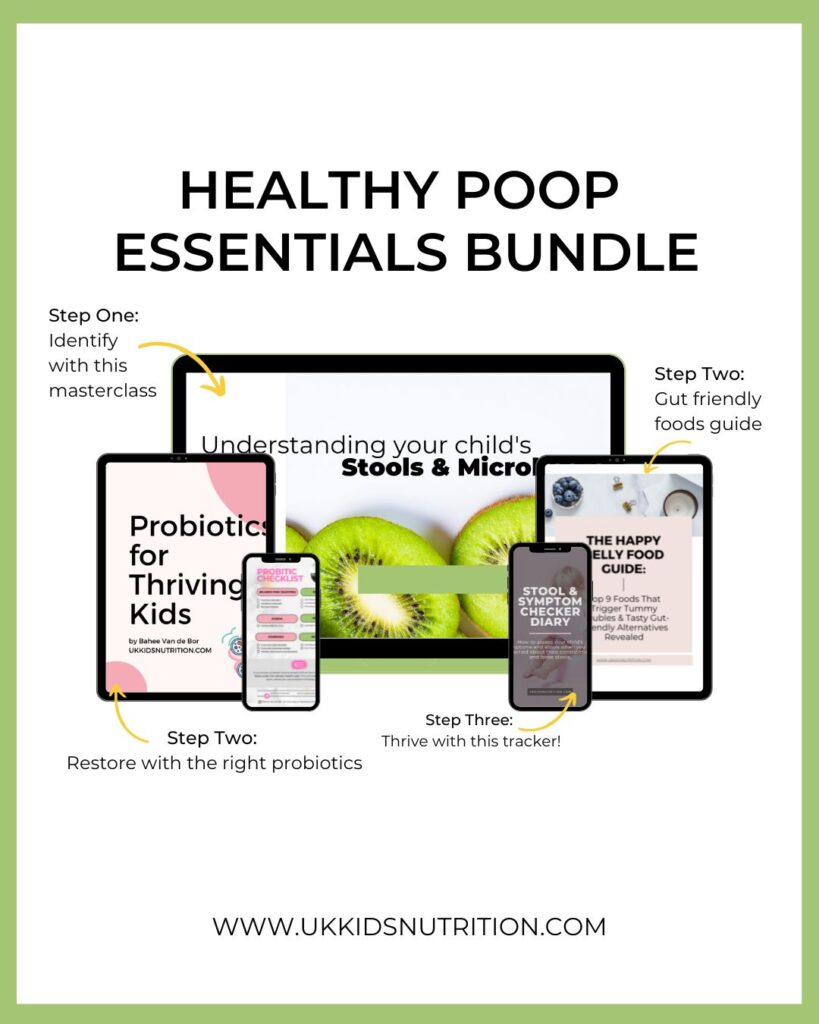
Water and Gut Health
Did you know that water is more than just a thirst quencher?
Research reveals that it’s a key player in maintaining the health and balance of your child’s gut bacteria.
It’s crucial to encourage kids to drink enough water throughout the day.
This is especially important for children who might face issues like diarrhoea after taking antibiotics.
Keeping them well-hydrated is essential for their recovery and overall gut health.
So, let’s make sure our little ones are sipping enough water every day!
Exercise/Activity
As part of your child’s recovery plan, it’s beneficial to gently encourage them back into activities like play or sports as soon as they’re feeling up to it.
The research underscores the importance of exercise in enhancing children’s gut health.
Engaging in physical activities not only aids their overall recovery but also contributes positively to the balance and well-being of their gut microbiome.
Let’s help our kids bounce back with some fun and healthy movement!
Bottomline
In summary, understanding the role of probiotics in your child’s gut health, especially post-antibiotic treatment is crucial.
With insights on how to select the most effective probiotic strains, such as Lactobacillus rhamnosus GG and Saccharomyces boulardii, you’re now equipped to make informed choices for your child’s well-being.
Remember, the journey to a healthy gut doesn’t stop at probiotics.
It’s a holistic approach that includes a balanced diet, adequate hydration, proper sleep, stress management, and regular physical activity.
My “Probiotics for Thriving Kids Masterclass” offers a deeper dive into these topics, providing you with comprehensive strategies to support your child’s gut health.
Enrol in the Masterclass to explore more about nurturing your child’s gut health for their overall well-being and resilience against common health challenges.
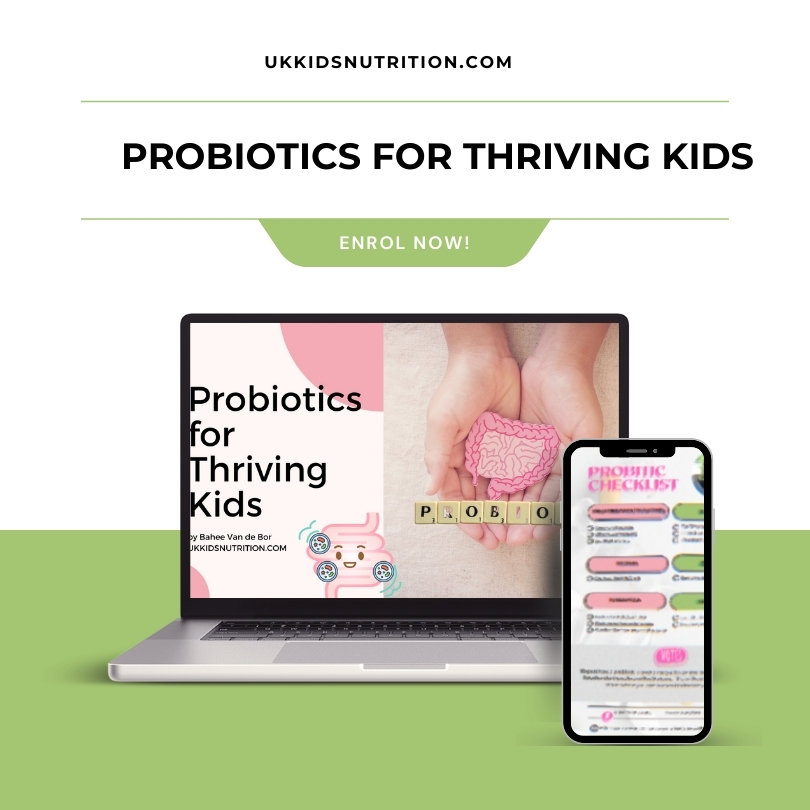

Let Me Help
If you’re seeking more personalised guidance or in-depth information, consider exploring my specialized programs and resources:
- Online Course: “Happy Belly BluePrint” – This comprehensive course offers detailed strategies and insights to alleviate constipation and related discomfort in children.
- 1-2-1 Programme: “Happy Belly Club” – Tailored for individual needs, this program provides one-on-one support to master the challenges of gut health and IBS in kids.
- FREE Guide: Don’t miss out on the valuable insights in “Heal Tummies With Smart Snacks”. Download this free guide to start making positive changes today.
- CHAT With Bahee: Book a free initial consultation to discuss the Happy Belly Club.
Each of these resources is designed to empower you with the knowledge you need to support your child’s gut health.

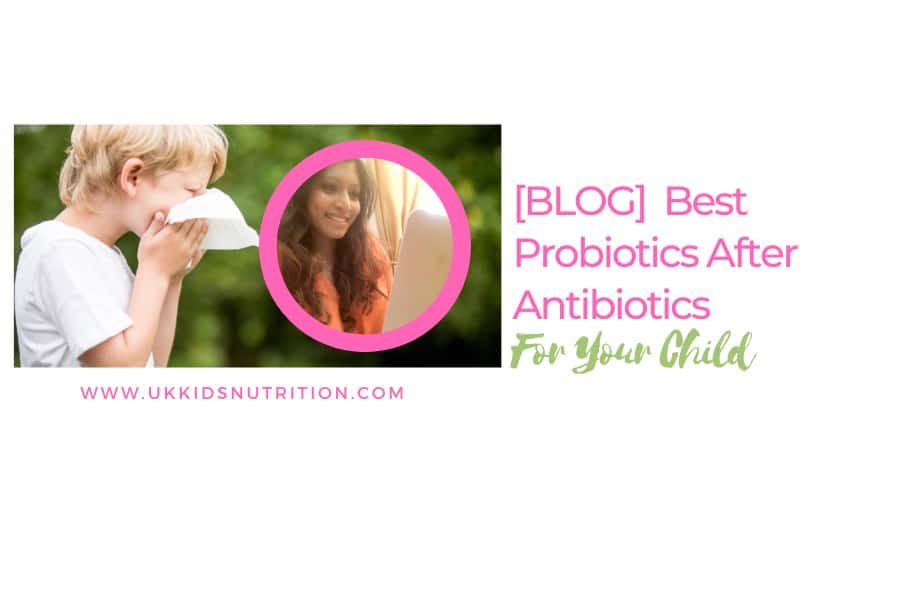



More Stories
Avocado Cacao Mousse – JSHealth
Janelle Brown on Garrison’s Mental Health Before His Death
How To Finally Beat Insomnia